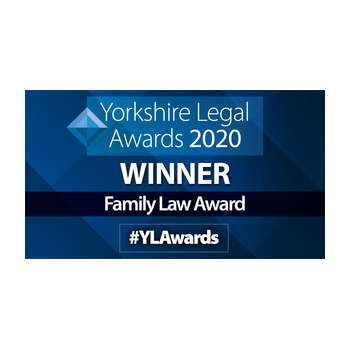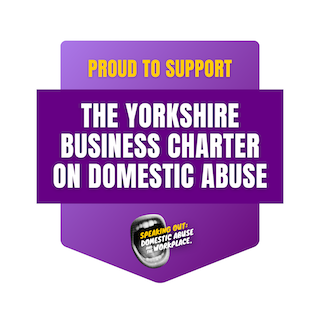
Family &
Matrimonial
Ridley & Hall provides specialist family law advice. We believe that the quality of our family legal team is second to none. We understand the emotional and financial stress that clients experience when a relationship comes to an end.
We also provide a full range of advice on relationship breakdown, abuse and violence within relationships, financial security following divorce or separation and disputes over the children.
Ridley & Hall can offer a holistic approach to the problems arising from the breakdown of relationships. When the case needs it, we can call on the additional expertise from colleagues in our other departments. We can also provide specialist legal advice on care proceedings, public law and kinship care.
We can offer legal aid to those who qualify. For those people who are not eligible for legal aid, we will set out clearly what the case is likely to cost. We can then have a full discussion about the best way to meet these costs.
Meet The Family Team at Ridley & Hall
Divorce & Separation
Separation, divorce and dissolution of a civil partnership can be a very difficult time for all concerned. As well as the emotional side of the divorce, there are the legal implications.
If you want to separate but not get a divorce then there are steps you can take to record any separation agreement about children and finances. You should obtain legal advice about this.
Divorce or Judicial Separation (legal separation) can be straightforward when you know what to do. For most people, divorcing is a very big step to take. Many divorcing couples have difficulties sorting out arrangements for the children, or sorting out financial issues. We will guide you through the divorce process and ensure you make the right decisions for you and your family.
Fixed Fee Divorce
Here we go on the Court record as acting for you, and we prepare all the paperwork and send it out to the Court for you, so we take away all the administrative responsibility for the divorce itself. We deal with the Court responses and with the Respondent direct.
This fixed fee divorce service is ideal where you are not comfortable dealing with all the paperwork and/or you would prefer not to have to have direct contact with the Respondent. It can still become complicated if the Respondent does not return forms or if the Court are not satisfied that the grounds for divorce have been met in your case. If that happens you opt for a bespoke package or pay an additional fixed fee to pay for us to organise personal service on the Respondent or submit additional information/applications to the court to secure the outcome you need.
Where there are complicated issues to resolve around how to separate finances in a divorce you should instruct a Solicitor to help and advise.
The cost of this service starts from £750 plus VAT.
Bespoke
Here you pay by the hour for the service of a divorce solicitor or legal executive, which means that you will get a service that is tailored to your personal needs and requirements. Because of this, the cost will vary from client to client. This will particularly suit clients who are very anxious about the divorce proceedings, who need a lot of reassurance or for clients who have complex family legal problems. We will give you a costs estimate at the outset and we will update that estimate as the case progresses if the circumstances change. We ask for £500 on account of our costs at the outset of the case, when we will agree also arrangements for further payment as the case progresses.
This is ideal when you want us to deal with every aspect of the divorce process to give you peace of mind and take away the stress of dealing with it yourself. It is also advised for complicated divorce cases when you need extra legal support to secure a good outcome.
Our hourly rates differ depending on who is representing you but we will set these out for you very clearly at the outset before you decide to instruct us.
Family Help Scheme – Discounted Fees
At Ridley & Hall we are always looking for ways for our family to help your family. We are now introducing the Family Help Scheme. Our team will assess your eligibility using the Joseph Rowntree Minimum Income Standard, so we will take some initial details from you. If you qualify, you will be entitled to a 20% discount on our hourly rate fees. This is a significant saving for families going through separation, divorce or disagreements concerning arrangements for children.
It means that if you do not qualify for legal aid, but are struggling with meeting solicitors fees, you may qualify for our new discounted rate service, the Family Help Scheme. If you are assessed as eligible, we will agree a direct debit plan with you and once you have returned that, your fees will be discounted by 20%. We are only offering this until the 29th February 2024, so please contact us for further information.
Terms and Conditions
This does not apply to any fixed fee work. You will be subject to an assessment and will need to provide certain documents to enable the assessment to be carried out fairly. If it transpires that you have been wrongly assessed, or your circumstances have changed to make you ineligible, you will be charged for all remaining work at our standard hourly rate fees.
To qualify you will have to return direct debit forms, and ensure that your direct debit is paid. If you fail to return the direct debit information, then you will no longer qualify and all fees will be chargeable at our usual hourly rates. If you miss a direct debit payment then you will no longer qualify and all fees will be chargeable at our usual hourly rates.
Pre & Post Nuptial Agreements
A prenuptial or postnuptial agreement is an agreement that is made before or after a couple gets married, and sets out how their financial assets and income should be divided if they were to separate and/or get a divorce.
It sets out both of your rights to all of your possessions that were brought into the marriage or acquired individually – for example, either through inheritance or those that were purchased together.

Domestic Abuse
We Specialise in Domestic Abuse
Our team specialise in domestic violence and abuse cases and all the members of our Family Law team completely understand the problems and the effects that domestic abuse has on children, dependants, and on your life outside the home, and at work.
As a team we also work with and support a number of Domestic Violence charities around the country.
Our Director, Emma Pearmaine is the Chair of Trustees for The Corporate Alliance Against Domestic Violence.
We will work with you to try and ensure your safety and that of your children.
Financial Settlements
If you separate and/or divorce, you will need to unravel your financial affairs, which in some cases can have been tied together for many years.
There are many “urban myths” around finances and divorce, and the reality is that each case is judged on its own facts. The Court will want to see that each spouse can meet their ‘needs’ going forwards and that dependent children are provided for financially. This can be a challenge where finances are limited and legally complicated where finances are more abundant.
Our Family and Matrimonial team can advise you specifically what you are entitled to and take a fair and robust approach to ensuring the right outcome for you. We can help you reach an agreement with your spouse and if that is not possible, we can represent you in court proceedings to secure the necessary financial order.

Unmarried Couples
There is no such thing as a common law husband and wife. This is a myth.
Cohabiting couples have very few legal rights over any assets or property owned by the other person. This is in stark contrast to the rights you have within a marriage. There are ways in which we can assist you to show you have directly contributed in some way and that it was intended that the two of you would both benefit from it.
If you are a cohabitee who is responsible for the care of children there are legal applications we can help you to make to secure financial support for your children.
We can also advise you prior to living with your partner on agreements that stipulate your living together arrangements.

The Legal 500 Says:
“Emma Pearmaine and Emma Hopkins Jones head the Leeds-based team at Ridley & Hall, Vicky Medd and James Cook head the Huddersfield office. Its workload is focused on financial issues within divorce proceedings, namely advising women so as to empower them in emotionally and technically complex cases of domestic abuse, child care or guardianship. Huddersfield-based senior partner Nigel Priestley specialises in grandparents and kinship carers children work.”
Our People

Emma Pearmaine
Managing Director
Vicky Medd
Partner
Emma Hopkins Jones
Partner
Karen Roberts
Partner
Kate Hames
Solicitor
Zuzanna Taithe
Solicitor
Chloe Flynn
Solicitor
Shelley Harper
Associate,Solicitor

Ernestas Motiejunas
Solicitor
Chloe Flynn
SolicitorFAQs - Divorce & Separation
Since 6 April 2022, a new law came into effect allowing couples to divorce without playing the divorce “blame game”. Now, the only ground for divorce is an irretrievable breakdown of marriage. There is no need to blame your spouse for the divorce and no need to explain why you want a divorce. You can now issue a joint divorce application with your spouse, with both of you agreeing that the marriage has irretrievably broken down.
A conditional order (previously known as a “Decree Nisi”) is an order entitling you to the divorce but does not finalise the divorce itself. To finalise a divorce, you must obtain a “final order” (previously Decree Absolute).
To obtain a conditional order, you must satisfy the court that you have served your spouse with the papers. Either an enquiry agent or process server can personally serve the divorce papers, or alternatively, an application can be made to the Court Bailiffs to personally serve the papers. Once confirmation is received that your spouse has been served with the paperwork, the divorce application can continue.
You must complete a divorce application via an online portal. The application is drafted and will be submitted via the portal with your marriage certificate, which we must hold the original of and submit a certified copy, and a payment of the court fee of £593.
The court will look through the application and will allocate a case number. The paperwork will then be sent to your spouse.
Your spouse has 14 days to return an acknowledgment of service via the portal, or alternatively, if they do not have solicitors instructed, they can also return a paper form to the court.
You must then wait 20 weeks before a conditional order can be granted. This time has been allocated under the new law as a period of reflection. Once 20 weeks have expired, you can apply for a conditional order via the online portal. A hearing will be listed and the judge will consider whether or not you are entitled to the conditional order. Usually, these hearings are unattended unless there is a disagreement about costs of the divorce, in which case, the judge may request for the parties to attend.
Post conditional order, there is a period of 6 weeks and 1 day after the making of the conditional order before you can apply for a final order, to conclude the divorce. If there are financial issues to sort out, we will usually advise you to wait for a financial agreement and/or order before applying for a divorce final order.
It is important to note that even after a final order is granted, that this only concludes the divorce and not any financial aspects of your marriage. Until a financial order is granted, claims for financial relief remain open.
All divorce applications are now issued through the online portal. It can vary as to how long it takes for the court to process the paperwork.
At the minimum, a divorce under the new law now takes 26 weeks and 1 day. However, this is likely to take longer due to the spouse having 14 days to respond, and there may also be financial issues which need to be resolved which can sometimes take quite some time. Additionally, there can also be times where the spouse does not return the papers, which can cause delays in service.
We offer a fixed fee divorce service for £750 + VAT which covers all the aspects of dealing with a divorce no matter what complications may arise. This does NOT include the court fee of £593 which will have to be paid separately to the courts.
No. You can apply for financial orders once a conditional order has been made but the financial order will only take effect upon obtaining a final order.
FAQs - Pre & Post Nuptial Agreements
They are NOT legally binding but the Court will try to impose the terms of a pre or post nuptial agreement if it was prepared in the right way and is fair and reasonable in the circumstances.
The Court will take into consideration;
- Whether you or your partner took independent legal advice when making the agreement.
- Whether you or your partner were under pressure to sign the agreement.
- Whether you both provided financial disclosure of your assets.
- Whether the person who had the most to lose understand the terms of the prenuptial agreement.
- Whether it would be unfair if the prenuptial agreement was upheld.
You will both need to take independent legal advice from a specialist Family solicitor throughout the process.
The costs of preparing a prenuptial or post nuptial agreement depends on the complexity of the financial arrangements and the length of the negotiations.
If you have decided to enter into a prenuptial agreement, this should ideally be completed at least 6 weeks before your wedding. This means you will need to set aside plenty of time to negotiate the agreement and ensure you both fully understand and agree to its terms.
If you decide to enter into a post-nuptial agreement you should do this as soon as possible when the change of circumstances takes place. You should also consider reviewing your agreement periodically to ensure it accurately reflects your present circumstances.
- Are you getting married for the first time and bringing assets or significant income into the marriage?
- If this is your second marriage, do you want to protect the financial settlement you received from your first marriage OR do you need to protect children form a previous relationship?
- Have you generated significant wealth during your working life and do you want to ensure you have something to leave in your will for your children?
- Do you have business interests and/or business partners who need to be protected?
- Are you concerned about a lengthy court dispute over your assets in the event your marriage was to come to an end?
- Are you a widow or widower thinking about getting married again and would like to protect your possessions?
- Do you have a high earning capacity and wish to cap maintenance provisos, which in the event of divorce could be made to your partner?
Our Solicitors will advise you whether you would benefit from a pre or post nuptial agreement
FAQs - Financial Settlements
1. Mediation
We can refer you to a mediator if you and your spouse feel able to negotiate direct with the help of a mediator, to agree financial settlement. We make the referral for you and we advise you throughout the mediation process to ensure you get the outcome that is right for you. The mediator will assess if the case is suitable for mediation. If it is, the mediator will set up a joint meeting. The mediator will then assist you and your spouse in trying to reach a mutual settlement. This takes work and compromise on both sides and can be really difficult for both. However, it is worth it. It takes far less time, and costs far less money. When Mediation has concluded we will draft all the necessary legal Orders to make the mediated agreement legally binding and enforceable.
2. Solicitor Negotiation
Often couples find it very difficult to negotiate between themselves. This is understandable, given the emotional impact of the discussions. Solicitors, contrary to popular belief, do their best to try and assist clients in resolving disputes on an amicable basis. At Ridley and Hall our legal advisors are Resolution members, which means that they sign up to a code of conduct which means that they do their utmost to try and resolve relationship disputes in a constructive way. We will offer a clear, fair and robust strategy with the primary focus being to meet your needs and the needs of your family. You can find out more about the Resolution code of conduct at http://www.resolution.org.uk/code/
We can help you to exchange financial disclosure, and then negotiate settlement on your behalf. This can be done with your spouse and his or her representative in correspondence or face to face in round table meetings.
3. Family Arbitration
Family Arbitration is a relatively new process, and involves you and your spouse paying an arbitrator to make decisions about finances when you cannot agree. The advantage is that you are paying for someone to judge your case, without having to jump through the hoops that the Court process involves. This can mean that your case is resolved more quickly and more cheaply than litigating through the courts. Both of you have to sign an agreement to say that you will be bound by the arbitrator’s decision, whether that is for or against you, and Courts do uphold arbitrators’ decisions. We will represent you in the Arbitration process in the same that we would in a Court process.
4. Court Process
Where you and your spouse are unable to reach an agreement about how to separate finances then a Court application has to be made. We will prepare all the necessary applications and evidence required for this process.
Once issued, the Court will allot a hearing within 3 months. During that time you and your spouse will have to prepare and file with the Court a Form E, which is a financial statement. We will do this for you.
The first hearing is generally a directions appointment, where the Court make directions about how the case will be dealt with. We would represent you at this hearing and ensure that the Court are made aware of all the issues in your case and we will use our best endeavours to ensure all necessary Court directions are given for your case to be heard as swiftly as possible.
The next court hearing is usually a Financial Dispute Resolution Appointment, where the Judge hears from both sides about what they are seeking, and gives an indication of what they would do at a final hearing. We would represent you at this hearing and present your case for you.
If your case has not settled after the Financial Dispute Resolution Hearing, then your case will be listed for a final hearing, where enough court time is set aside to enable both you and your spouse to give your evidence, and for the Judge to make a decision. We would take you and your witnesses through your evidence and we will cross examine your spouse and his or her witnesses on your behalf.
Generally the Court process takes about 1 year from the start to the final hearing, although it can be slower or quicker, depending upon the assets involved, and whether there is a complicated issue of law.
If the division of the matrimonial assets are agreed, a document known as a consent order can be prepared which records this agreement and is sent to the court to make your agreement legally binding.
We always advice that full and frank financial disclosure is exchanged before agreeing any financial settlement. There will always be an element of financial disclosure required and you will also have to complete a document called a statement of information, which is your summary financial disclosure in respect of income and capital positions when sending the consent order to the court to approve your agreement.
Our job as your legal representative is to ensure that the Court takes ALL the appropriate factors into account when deciding the outcome of your case. This can be easy and obvious in some instances and evidentially quite challenging in others. One factor can have a direct impact on another and as the Court will consider your financial situation in the round it is important to address each issue carefully and apply a robust strategy to achieve a fair outcome overall.
Under s.25 Matrimonial Causes Act 1973, the Court has to take into account the following:-
- (a) the income, earning capacity, property and other financial resources which each of the parties to the marriage has or is likely to have in the foreseeable future, including in the case of earning capacity any increase in that capacity which it would in the opinion of the court be reasonable to expect a party to the marriage to take steps to acquire;
- (b) the financial needs, obligations and responsibilities which each of the parties to the marriage has or is likely to have in the foreseeable future;
- (c) the standard of living enjoyed by the family before the breakdown of the marriage;
- (d) the age of each party to the marriage and the duration of the marriage;
- (e) any physical or mental disability of either of the parties to the marriage;
- (f) the contributions which each of the parties has made or is likely in the foreseeable future to make to the welfare of the family, including any contribution by looking after the home or caring for the family;
- (g) the conduct of each of the parties, if that conduct is such that it would in the opinion of the court be inequitable to disregard it;
- (h) in the case of proceedings for divorce or nullity of marriage, the value to each of the parties to the marriage of any benefit which, by reason of the dissolution or annulment of the marriage, that party will lose the chance of acquiring
- In most cases the Court are looking predominantly at what most people need and they work back from there. It is our job as your legal representatives to ensure that your case is presented in the right way so as to ensure you secure the right outcome.
This is not an exhaustive list but you will be required to provide evidence of your income, all bank accounts you had either in your sole name or in joint names, details of any properties you own, any investments, any liabilities, values of pensions and any other assets of significant value.
Costs vary significantly, depending upon where you live, what assets you have, and how co-operative the other person is. We will give you a costs estimate at the outset of your case and review it with you throughout the case. We can offer private funding terms by agreement and we can work with a litigation funding company if you need to take a loan agreement to fund your case in advance of you receiving your cash settlement at the end.
FAQs - Child Disputes
A Child Arrangements Order can say who a child can spend time with and where the contact will take place (formerly called a contact order). For example, a parent who wants to have contact with a child and the other parent refuses to grant it, after exhausting all other avenues including negotiation, correspondence and mediation, will need to apply to the Court for help. Another example is where there is a dispute between parents about who is best to care for the child.
The Court can make orders on what are known as Prohibited Steps and Specific Issues. As the names suggest, on an application for Prohibited Steps the Court can order that a child is not removed from a person or place without authority of that person or the Court, and in respect of a Specific Issue application, the Court can be asked to make decisions about specific things, such as what a child is called, what school they should go to, whether they can be taken abroad temporarily or permanently. We can advise you on your specific circumstances and recommend action that is right for you and your child.
Increasingly here at Ridley and Hall, we are seeing a lot of parents who want to relocate to another country with their children, or want to oppose an application by the other parent for them to move to another country. Sometimes children are taken out of the country without the other parent knowing.
These cases are fraught with emotion – the parent who is wanting to go sees a new and sometimes better life for themselves and the children, whereas the parent who remains sees their children being removed from them almost permanently.
These cases are also technically very difficult. They can involve other Jurisdictions and require specialist legal representation. We can advise and represent you in your case.
The Court’s starting point is what is in the children’s best interests. However, there have been many cases that have helped build up the law on this point, and the law changes all the time. The Court need to see a well thought through plan – where the children will live, how they will be funded, what schools will they go to, how often will they see the other parent? They also need to be satisfied that it is being done for the right reasons – not to prevent contact to the other parent, for example. We will help you to present your case to the Court so as to ensure you secure the best outcome for your child.The Court has a really difficult decision to balance up the benefits of a move, against the negatives of the move, and quite often the cases are very finely balanced. Our specialist advice can help to focus on the relevant factors and most up-to-date case law
CAFCASS stands for Children and Family Court Advisory and Support Service. They have a really good website that can be found at www.cafcass.gov.uk. CAFCASS are appointed by Judges to become involved in cases once an application has been made to the Court. Their staff are professionally qualified and are called Family Court Advisors. They will work with families to make recommendations to the Judge about what should happen in particular cases. They will also, if considered appropriate, speak to children, schools, health visitors and anyone else they consider to have important information.You should talk to us before you talk to CAFCASS. We can guide you through your interaction with CAFCASS to ensure your CAFCASS officer properly understands you, your child and the issues before the Court.
Legal Aid is very rarely available for applications to the Court for Child Arrangement Orders, unless one of the parents (or in some cases the children themselves) are the victims of domestic violence or abuse. https://www.gov.uk/legal-aid/overview
If you are not eligible for Legal Aid we will give you an estimate for the work we need to do for you at the beginning of your case. We will then keep you regularly updated about costs as your case progresses. There are a number of funding options available by agreement. In some cases, we can offer fixed fees. We will advise you if your case is suitable for a fixed fee at the outset of your case. Please talk to us to determine how you can best afford to progress your case with our specialist legal representation.
- Mediation is a form of alternative dispute resolution.
Before you can make any application to the court regarding children you usually have to attend a mediation information assessment meeting.
We highly recommend that if your case is suitable for mediation you attempt this process to try and keep your matter out of the courts. You can contact us for initial advice and we can tell you if your case will be suitable for mediation.
FAQs - Domestic Abuse
This is now a criminal offence under the Serious Crime Act 2015. The Act now creates a new offence of controlling and or coercive behaviour in intimate or familial relationships (S.76).
In 2015 The Home Office Statutory Guidance issued a guidance framework which helps us to understand what constitutes coercive controlling behaviour which includes but is not limited to;
- Isolating a person from friends or family
- Depriving them of their basic needs
- Monitoring their time
- Monitoring a person via online communication tools or using spyware
- taking control over aspects of their everyday life, such as where they can go, who they can see, what to wear and when they can sleep;
- depriving them of access to support services, such as specialist support or medical services;
- repeatedly putting them down such as telling them they are worthless;
- enforcing rules and activity which humiliate, degrade or dehumanise the victim;
- forcing the victim to take part in criminal activity such as shoplifting, neglect or abuse of children to encourage self-blame and prevent disclosure to authorities;
- financial abuse including control of finances, such as only allowing a person a punitive allowance;
- threats to hurt or kill;
- threats to a child;
- threats to reveal or publish private information (e.g. threatening to ‘out’ someone).
- assault;
- criminal damage (such as destruction of household goods);
- rape;
- preventing a person from having access to transport or from working.
The Act recognises that controlling or coercive behaviour does not only happen in the home, the victim can be monitored by phone or social media from a distance. An important element of the new legislation is that the victim must have been made to fear violence on at least two occasions or adapt their everyday behaviour as a result of serious alarm or distress. A fundamental element is that the perpetrator knows or “ought to know” that it will have a serious effect on the victim.
Ridley & Hall regularly act for clients who are victims of coercive control and we know how single events of coercive and controlling behaviour don’t look serious when considered on their own merit, but when considered alongside a whole catalogue of events a very serious picture emerges for the victim who needs legal advice and also support from the police and which should result in prosecution.
Victims of Domestic violence and abuse are very brave. It takes great personal fortitude to live day in day out with both the threat and reality of domestic abuse and if you need to tell us about your circumstances WE WILL BELIEVE YOU. We can help to identify charities and organisations who can help you and we can secure the necessary Court Orders to help to keep you and your children safe from future harm and address any financial or housing needs you have.
The Government defines domestic violence as
“Any incident of threatening behaviour, violence or abuse (psychological, physical, sexual, financial or emotional) between adults who are or have been intimate partners or family members, regardless of gender or sexuality.”
Domestic abuse occurs across society, regardless of age, gender, race, sexuality, wealth, and geography, though the figures show that it consists mainly of violence by men against women.
Many abusers behave in ways that include more than one type of domestic violence, and the boundaries between some of these behaviours are often quite distorted.
There are different types of domestic abuse, however these can consist of:-
- Emotional/Psychological – Emotional or psychological abuse can be verbal or nonverbal. Psychological abuse aims to chip away at the confidence and independence of victims. Emotional abuse includes verbal abuse such as shouting, name-calling, blaming and shaming, seclusion, intimidation, threats of violence and controlling behaviour.
- Physical – There are a broad range of behaviours that come under the heading of physical abuse including actions such as punching; slapping; hitting; biting; pinching; kicking; pulling hair out; pushing; shoving; burning and strangling.
- Sexual – Rape and sexual abuse is common in abusive relationships because an individual’s right to consent is likely to be ignored. Any situation in which an individual is forced to participate in unwanted, unsafe or degrading sexual activity is sexual abuse.
- Economic/Financial abuse – Economic or financial abuse aims to limit a victim’s ability to access help.
- ‘Honour’ based violence (HBV) is a form of domestic abuse which is perpetrated in the name of so called ‘honour’.
- A forced marriage is a marriage that is performed under duress and without the full and informed consent or free will of both parties.
- Elder abuse – This is where harm is done, or distress caused, to an older person within a relationship where there is an expectation of trust.
- Stalking – While stalking may be perpetrated by strangers or acquaintances, stalking is most often committed against women by former or current partners.
Victims of Domestic violence and abuse are very brave. It takes great personal fortitude to live day in day out with both the threat and reality of domestic abuse and if you need to tell us about your circumstances WE WILL BELIEVE YOU. We can help to identify charities and organisations who can help you and we can secure the necessary Court Orders to help to keep you and your children safe from future harm and address any financial or housing needs you have.
We can represent you in applications for;
- Non-Molestation Orders–These orders prohibit someone from being violent or threatening violence against you or your child. It also includes intimidation, harassment, or pestering. Breaching this order is a criminal offence.
- Occupation Orders– This order relates to who can live in the family home and can also restrict access to the surrounding area as well.
- Child Arrangement Orders – to protect your children from the perpetrator.
- Financial Orders – to secure income and property for you and your children
We can also work with the Police whilst they investigate your case against the perpetrator. Police forces are responding positively but charges and subsequent prosecutions continue to be challenging, generally because of evidential issues. Campaigners like Ridley & Hall and The Corporate Alliance Against Domestic Violence continue to work tirelessly with the Police to overcome such challenges.
Legal aid may be available and subject to a means and merit test. We can do a legal aid assessment free of charge. If legal aid is not available we can discuss whether we can offer you a fixed fee or act on a private rate.
FAQs - Unmarried Couples
The starting point in deciding what should happen to a jointly owned property upon relationship breakdown is to look at how the property is owned according to the Land Registry. If you own the property as “joint tenants”, the starting point is that you own the property equally and have an equal share in the equity in the property.
If you own the property as “tenants in common”, the starting point will depend on what you decided when you purchased the property, you may each own 50% of the property, or different shares.
You may decide you want to sell the property and share the sale proceeds, or one partner may want to buy out the other person by paying them a lump sum in exchange for that person transferring their interest in the property.
You will need legal advice to help you to determine your interest and rights and decide a strategy for securing an outcome which meets your needs.
Entering into a cohabitation agreement at the start of a relationship could prove very useful and act as a guide on how to deal with financial maters during your relationship and on separation.
As with all separations, there is no requirement that you enter into a formal written legal separation agreement. However, so that everybody is clear about what is going to happen following a separation, we always advise that a formal written agreement, known as a Separation Agreement is signed by both parties. If there is a later dispute you will have a written record of the arrangements you have agreed. We will prepare your bespoke agreement for you.
Most unmarried couples, upon ending their relationship manage to reach an agreement about finances and property without having to go to Court.
Many people can reach an agreement on how to separate directly between themselves, but need to secure legal advice to record the outcome of the agreement to ensure it cannot later unravel. Some couples find it very difficult to communicate and need with the help of solicitors who can negotiate and secure an agreement. We can do this for you.
Some separating couples may choose to go to mediation to help them come up with a solution about what will happen to their property and a mediator can draw up an agreement that both parties sign. We can advise you on your legal rights and refer you to mediation, providing you with support through the mediation process.
If you can’t reach an agreement on how to separate you may have to go to Court to ask a Judge to decide.
Going to Court can be extremely complicated and stressful. There are certain steps that must be taken before proceedings can be issued; these steps are designed to help parties reach an agreement without going to Court. We can guide you through the process and represent you in Court proceedings to help you to secure a fair outcome.
The costs estimate we will give you will depend on how complex your case is. If you have a lot of assets that need to be sorted out, inevitably the case will cost more.
Costs will also be dependant on how much negotiating we need to do on your behalf.
We are able to offer fixed fees in certain circumstances. We will advise you whether we think your case is suitable for a fixed fee.
If you have to go to court the usual rule in civil proceedings is that ‘costs follow the event’. Put simply, this means that usually the losing party pays the costs of the successful party. However, a Judge has a wide range of powers when it comes to making costs orders. If he or she believes that one party has behaved unreasonably, for example by refusing to attend mediation, then a Judge can decide you are not entitled to your costs even if you are successful at Court. We can advise you through every step of the process to ensure you achieve a fair outcome.







